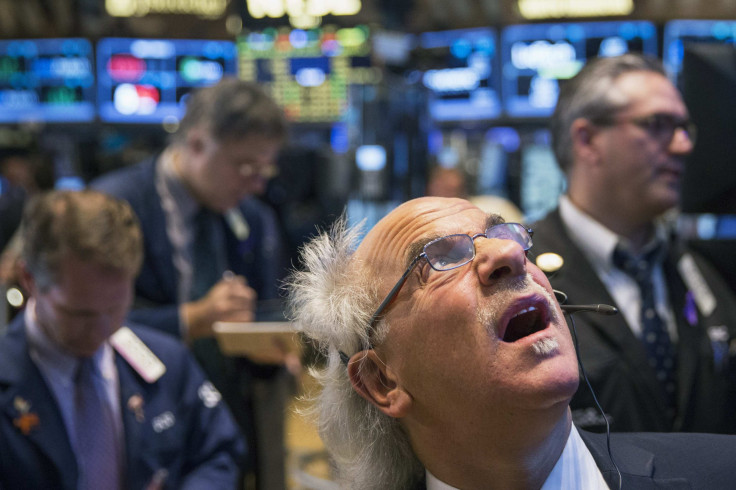Dow Jones Industrial Average, S&P 500 Rise To New Record Highs Despite Trio Of Weak Data

U.S. stocks edged higher Monday, despite a trio of disappointing economic reports pointing to slower global growth, as gains in Europe and Asia helped boost Wall Street.
Data on Monday revealed the U.S. service sector recorded its weakest rise in business activity since April, pointing to a more sluggish uptick in new business. Markit's Flash U.S. Services PMI Business Activity Index declined to 56.3 in November from 57.1 the previous month, the lowest reading since April, signaling a sustained loss of momentum since the post-crisis peak seen in June.
“A fifth-consecutive monthly slowing in growth in the service sector adds to signs that the economic upturn has lost considerable momentum, though it’s important to note that the pace of expansion remains robust by historical standards,” Chris Williamson, chief economist at Markit, said in the survey.
Separate data released Monday showed economic growth moderated last month, according to the Chicago Federal Reserve's National Activity Index. The monthly index, designed to gauge overall economic activity and related inflationary pressure, rose 0.14 in October, down from a reading of 0.29 in September. A reading above zero corresponds to positive growth while a reading below zero corresponds to a negative growth trend.
The weaker-than-expected reports follow a third survey issued on Monday that showed monthly global business optimism fell in October. The Markit Global Business Outlook Survey, which looks at expectations for the year ahead across 6,100 companies, showed optimism fell sharply last month, dropping to the lowest seen since the survey began five years ago. “Clouds are gathering over the global economic outlook, presenting the darkest picture seen since the global financial crisis," Williamson said. The survey showed optimism in the U.S. remained more buoyant than in the eurozone and Japan. Optimism fell in the eurozone to the weakest level since June of last year, while Japan suffered from weak confidence relative to other major countries as optimism slipped to the lowest in two years.
One of the greatest concerns, according to Markit, is the slide in business optimism and expansion plans in the U.S., which recorded its weakest optimism over the past five years. "U.S. growth therefore looks likely to have peaked over the summer months, with a slowing trend signaled for coming months,” Williamson added.
The global financial markets soared on Friday, sending the Dow and S&P 500 to new record intraday and closing highs, after China announced its first interest rate cut in more than two years, and the European Central Bank said it would take action to stimulate its struggling economy with more asset purchases. Global stocks continued to gain on Monday following reports China is planning to cut interest rates again, according to an exclusive from Reuters.
Economists are anticipating Tuesday's first revision to U.S. gross domestic product for the third quarter after the Commerce Department said the economy expanded at a 3.5 percent annual rate during the July-September quarter, stronger than forecasts. Economists expect the U.S. economy grew at a 3.3 percent annual rate last quarter, according to analysts polled by Reuters.
The Dow Jones Industrial Average, which measures 30 large industrial stocks, gained 24.79 points, or 0.14 percent, at 17,855.27; the S&P 500 Index added 5.59 points, or 0.27 percent, to 2,070.17. The Nasdaq Composite climbed 25.76 points, or 0.55 percent, to 4,738.73.
© Copyright IBTimes 2024. All rights reserved.






















